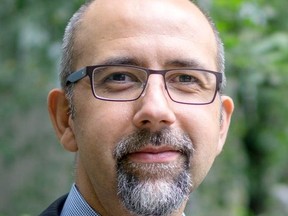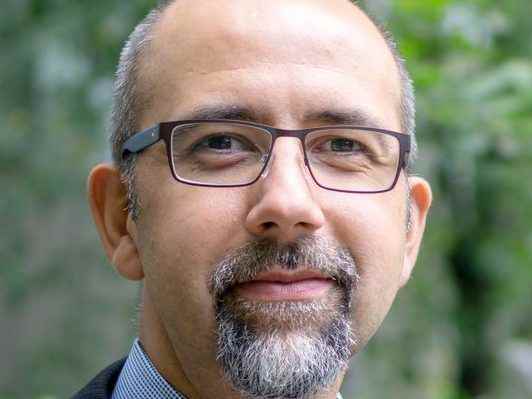Chatham-Kent’s new general manager of infrastructure and engineering services has said he wants to advocate for a “complete streets” approach to how roads are designed going forward.

Chatham-Kent’s new general manager of infrastructure and engineering services has said he wants to advocate for a “complete streets” approach to how future roads are designed.
Edward Soldo, who started working in Chatham-Kent in January, said complete streets plans, which have been implemented in other municipalities, consider different modes of transportation to make roads safer for all.
“It’s all about providing our residents with different options in how to travel, whether it be by foot, by cycling, using transit or private automobile,” he said in a wide-ranging interview. “Those would all be considered in a very balanced manner.”
Soldo came to the municipality from the City of Hamilton, where he worked as the chief roadway official. That city adopted a complete streets design manual last year.
Complete streets include different forms of active transportation facilities based on what specific roads need, Soldo said. This could mean bike lanes, including separated and dedicated bike lanes, depending on the road.
“On certain roadways where we have higher volumes, potentially higher speeds, there is a different type of cycling facility that might be required,” he said.
“Protected bike lanes are something I have a lot of experience with coming from the (Greater Toronto Area). There might be locations where those might be appropriate. In other locations where there are slower speeds and not as much car volume, maybe the type of facility is different.”
Soldo, an avid cyclist, said this approach is about protecting the “most vulnerable” – children and seniors – on roads while ensuring accessibility for persons with disabilities is factored into these decisions.
“It’s something that is always top of mind and, based on my background, we’re trying to design a community that is safe for everybody, no matter what age they are,” he said.
These types of decisions wouldn’t require a large study to determine which facilities are needed where, Soldo said, because guidelines are already outlined in traffic manuals released by the Ontario Ministry of Transportation.
“We don’t need to reinvent the wheel. We should just be following a best practices approach that are utilized in other municipalities,” he said.
Soldo said he wants to take this “best practice” approach across the whole infrastructure file to ensure “we deliver high-quality services that meet the needs of the residents here in Chatham-Kent.”
His portfolio covers engineering, public works, drainage, buildings, parks, recreation and cemeteries.
He said one of his top priorities is working on the next phase of the municipality’s asset management plan. The core asset management plan was presented to council last year and the next phase includes all other assets.
The plan will determine the current condition of these assets and how to keep them in good condition.
“We have a lot of assets that are dispersed in many communities,” Soldo said. “It is a challenge to provide a consistent level of service to all of those areas while, at the same time, dealing with some of our issues that we have.”
Soldo said the level of service the municipality can provide is based on a balance between the condition of assets, the risks the assets have, sustainability and cost.
“That’s something that council is going to have to deal with as we move forward because we do have a limited tax base and you have to prioritize where you are going to spend the money on,” he said.
The professional engineer said he supports previous calls from the municipality for the Ontario government to lift its cap on funding through the Ontario Community Infrastructure Fund.
Currently, Chatham-Kent receives $10 million each year, the most possible for any municipality. However, if there was no cap on funding, Chatham-Kent would receive more through the established funding formula.
The topic of divesting municipal buildings and bridges to reduce costs has come before council in recent years. Soldo said it is an option that is required to be looked at through the asset management plan.
“Divestment is always an option as a means of reducing the infrastructure funding gap that we may have, but that has to really be net balanced with the service levels for the community, public expectations and then the financial viability as well from an operating perspective, ” he said.
Soldo said the current planning being done will include presenting the existing levels of service in 2024, followed by the proposed levels of service going forward in 2025.

Comments
Postmedia is committed to maintaining a lively but civil forum for discussion and encourages all readers to share their views on our articles. Comments may take up to an hour for moderation before appearing on the site. We ask you to keep your comments relevant and respectful. We have enabled email notifications—you will now receive an email if you receive a reply to your comment, there is an update to a comment thread you follow or if a user you follow comments. Visit our Community Guidelines for more information and details on how to adjust your email settings.
Join the Conversation